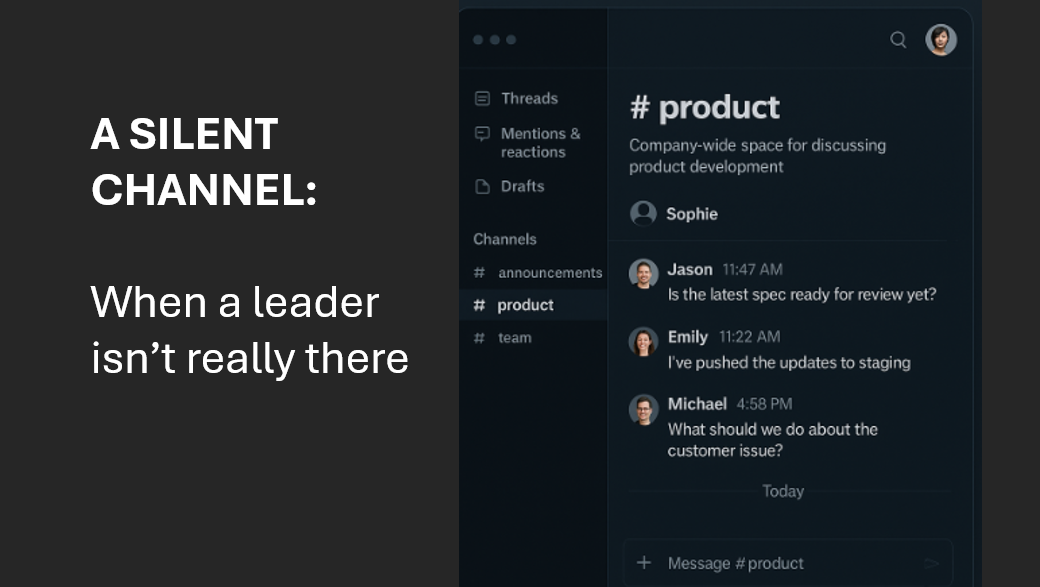The thing about change is that it is often complex, usually unique, frequently unexpected and not easily reducible. Yet, with those challenges in mind, we would like to share five pieces of advice for when you are meeting change – personally and for your work. These five tips are based on our own experiences of working with individuals and organisations that are making change happen successfully.
So, for you, here are the five most important Paradoxes of Change that we hope you find helpful in managing and leading change successfully:
- Plan knowing that the plan won’t work
- Go slowly to go fast.
- Use logical intuition
- Following as a form of leadership
- Be a self-centred leader
Paradox #1 Plan knowing that the plan won’t work
We have all heard the phrase, “Failing to prepare is preparing to fail.” Indeed, you may well have heard something similar throughout your career and whilst there is some truth to it, there is a limit to the utility of a plan. Putting too much faith in the idea that because you have a plan, everything will unfold according to your plan, is a surefire way of holding too rigidly to something that is no longer fit for purpose.
Indeed, German military strategist Helmuth von Moltke said that, “No battle plan survives contact with the enemy’s main force.” And Dwight Eisenhower, 34th President of the USA, went further and said in his experience, “I have always found that plans are useless but planning is indispensable.”
The key message here is that planning is clearly an important part of how you can lead change effectively. Generally speaking, using a free-styling, unplanned, “winging-it” approach to leading any change is asking for trouble. Following this unplanned approach means you will end up having to react to circumstances, without the time needed to consider your options.
So, do plan for change. Plan in detail. Plan in lots of detail, with timelines and goals and milestones. But also be flexible in your thinking and accept that your plan may be redundant early in the process and need a complete do-over – possibly many times.
Paradox #2 Go slowly to go fast
Jumping straight from the sofa into 10k run as if you were already an experienced marathon runner is a sure way to injure yourself and much more likely to put you off exercise for life! And trying to play a Rachmaninoff piece on the piano before you have mastered a basic version of Fur Elise is courting disaster. Going too fast too early is understandable but misguided.
The early stages of change benefit from taking time, being slow and being thorough. Doing so, leads to a stronger foundation upon which you can build your change effort – be that piano playing or long distance running, to name but two. The energy and conviction that you have when beginning a transformation, often prevents you seeing what you need to see and preparing the ground in the way that will be helpful later.
I love this idea from Bill Gates, philanthropist, author and Microsoft co-founder, who observed that, “People often over-estimate what they can achieve in one year and underestimate what they can achieve in ten years.”
Take that advice to heart when you are starting to lead the change you need to bring about. Invest the time early. Be content to set the ground, invest time in sharpening the saw, and then when you are ready commit with energy and pace.
There is something satisfying when you hear people say, “Where did they come from?” when you succeed in the delivering the results you want seemingly from nowhere. But you will know that your apparent rapid success has come from the hours, days, weeks or even years of investing in going slowly in order to move quickly.
Paradox #3 Use logical intuition
You should gather data before, during and after you have made the changes you need to make.
Before: so you can make decisions with all the available information you can access.
During: So you can work out if you need to pivot or if you remain on track.
After: So you can cement your learning and build your experience: What did you do well? What would you change the next time you have do something similar?
Developing this idea of logical intuition, Peter Block, whose writing on Flawless Consulting, informs much of our own work, advises: “Your observations and experience about the client are valid data.” The same goes with team members and colleagues.
Examining our experience of working with others, and understanding our personal responses to those experiences, tells us a great deal about what is going on in the wider system. It is a form of data. In Peter Block’s words, “If you want to understand their management style, you simply have to observe how you are treated.”
And whilst all this analytical, left brain activity is important, at times you should also honour your own intuition, follow your hunches, tap into and name your feelings – and occasionally follow your heart over your head.
Paradox #4. Following as a form of leadership
Many leaders we know are happy to lead others and recognise it as the way they can add real value to a situation. They can access their experience, make connections and leverage their network and authority to help things keep moving.
It is also true that the best leaders we know recognise the limits of their strengths and importantly, know the team members well enough to create ways for the others to lead when they are best placed to do so, which in turn means that the leaders have to follow.
We have a name for this: “shared leadership”. In the best teams, the leaders know when to step backwards as well as when to lean forwards. They allow others in the team to take the lead when it’s appropriate. In doing so, they make use of the diversity of styles and experiences available during times of change. They allow the team members with the best information and skills to lead, situationally.
By doing this, the leaders also give themselves valuable space to reflect, observe and to contribute in other ways. What is more, shared leadership sharpens the leadership experience and capabilities of the whole team. It’s a paradox: teams do best when leaders share the task of leadership, and the leaders can at times become followers.
Paradox #5. Be a self-centred leader
What is it that separates the best leaders we know from the rest, when it comes to meeting the challenges of managing any change event successfully? The best leaders spend time focusing on themselves. They recognise that they are the vehicle through which their leadership is demonstrated to the outside world. In order for you to be as effective as possible as a leader of change, you need to focus on developing your inner world.
To be self-centred usually means, being selfish, doing things for your own good rather than that of other people. But in this context we mean self-centred to refer to working hard and consistently on yourself because you realise that doing so, makes you better able to help, support and lead others more effectively.
The world’s political situation throughout history and more recently too, has been impacted by individual leaders who have a high (some might say extraordinarily high!) ego need. They try to bend the world to the way they want it, for their own glorification – it rarely turns out well. Leading is a privilege that you should exercise for the benefit of others not simply to feed your own ego and self-image.
So what can you do to develop your self?
• Be constantly learning
• take time to reflect,
• get feedback from others,
• spend time on self-development,
And
• recognise that the more developed your ‘Self’ the wider the range of perspectives you can appreciate and the more self-aware you become, the more sophisticated the range of options you can access.
Work on you, so you can lead others more effectively.
As coaches, it feels important we leave you with some questions that you can use to help remind you of these five paradoxes, whenever you are faced with leading an important change at work or in your personal life:
- What does a flexible plan look like for this change?
- Where can I slow down, invest more time at the beginning, without missing the deadline at the end?
- How will I ensure my intuition is heard when it needs to be?
- When should I be stepping back and following, in order to lead more effectively?
- Who do I want to be as a leader?
These questions have proved helpful to other leaders we have worked with as they manage their way successfully though change and therefore we commend them to you.
This content was originally used in a keynote speech presented with Patrick Ballin.
Exigence works with organisations to deliver full-stack HR leadership development solutions, from Executive and senior team coaching to Concise Coaching and Team Coaching. If you would like to discuss how we can help you deliver quantifiable impacts for your organisation, we’d love to hear from you – just contact us here.





